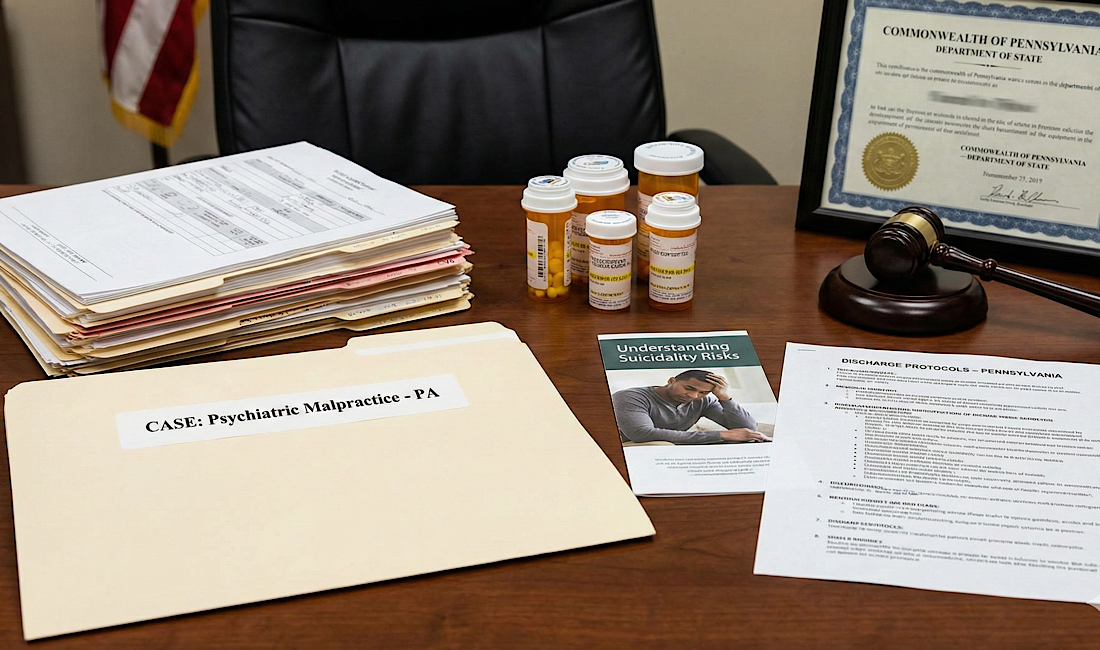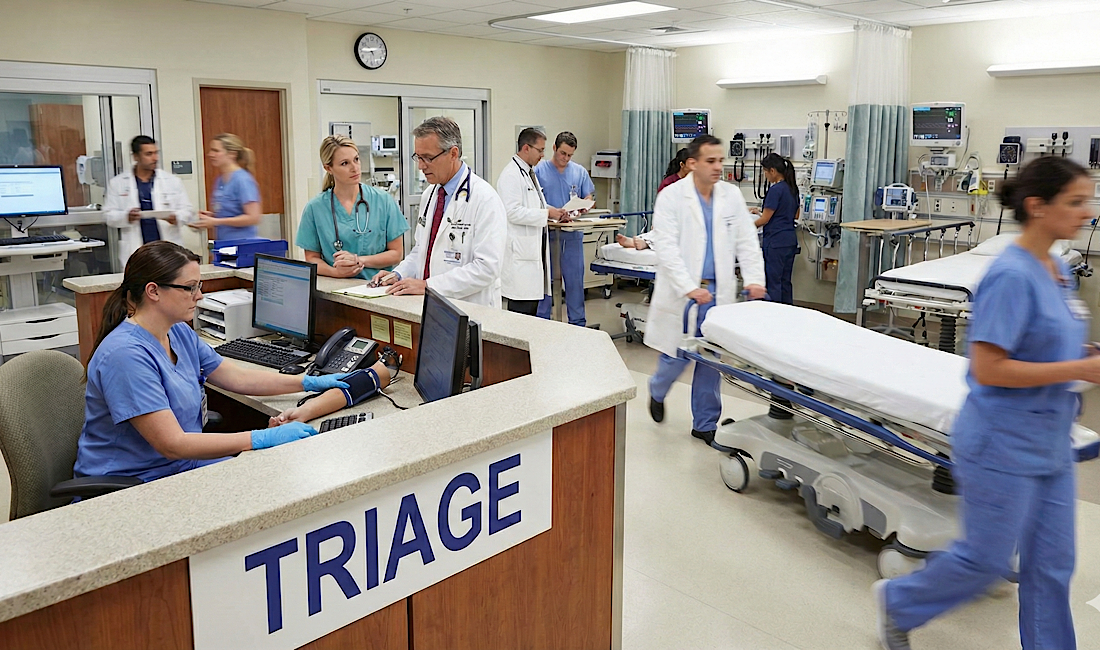Medicaid Cuts Threaten Pennsylvania’s Rural Hospitals

Quick Takeaways:
- Significant Medicaid cuts in Pennsylvania risk stripping health coverage from hundreds of thousands, especially impacting rural communities.
- Rural hospitals already lose money on Medicaid patients, and deeper cuts could trigger widespread closures.
- Hospital closures lead to longer travel distances for emergencies, risking patient lives.
- Rural hospitals are often major employers, meaning Medicaid cuts threaten thousands of local jobs.
- Long-term care facilities and community clinics also face closures, intensifying healthcare access problems.
Medicaid in Pennsylvania
In rural Pennsylvania, hospitals serve as critical lifelines. They deliver babies, handle farming injuries, and provide essential preventive care. Yet, these hospitals are now under threat. Recent Medicaid cuts proposed by a sweeping federal budget law could drastically impact healthcare access across Pennsylvania, with rural hospitals bearing the brunt. Over 3 million residents rely on Medicaid, especially in rural areas, where populations are typically older, poorer, or disabled [1].
Medicaid’s Crucial Role in Rural Pennsylvania
Medicaid supports a broad range of residents, including low-income children, seniors, individuals with disabilities, and working families, especially in rural areas. Approximately 737,000 rural Pennsylvanians depend on Medicaid, covering essential services like maternity care and primary clinics. Despite low reimbursement rates, Medicaid remains a cornerstone revenue source for rural hospitals, often determining their financial survival [1].
Currently, rural hospitals lose about 26 cents per Medicaid care dollar, compared to an 18-cent loss statewide [1]. Despite these losses, Medicaid funding allows rural hospitals to maintain operations, offering vital services close to home. Without Medicaid, the rural healthcare system's financial foundation crumbles.
Overview of Proposed Medicaid Cuts
The $1 trillion Medicaid cut stems from a federal budget law enacted in 2025, imposing stricter work requirements and reducing provider taxes [2]. Adults now face employment mandates to retain coverage, risking eligibility losses for about 300,000 Pennsylvanians. Additionally, provider taxes, critical for Medicaid financing, will drop from 5.9% to 3.5% by 2028 [3]. Pennsylvania hospitals could lose billions due to these cuts, notably affecting rural institutions reliant on Medicaid reimbursements.
These changes gradually phase in over several years, but rural hospitals already plan for dramatic cuts. Many rural facilities consider layoffs, service reductions, or potential closures to manage the anticipated shortfall.
Rural Hospitals Already Struggling
Even before proposed cuts, rural hospitals in Pennsylvania operated with tight margins and frequent financial losses [2]. Many already report persistent deficits, partly due to high Medicaid patient ratios and lower patient volumes. Chronic underfunding has severely eroded hospital stability, leaving little room for absorbing further cuts.
The COVID-19 pandemic exacerbated financial pressures, and many facilities have not fully recovered. Further reductions in Medicaid income could devastate these fragile institutions. Many rural hospital administrators warn that further cuts would force them into insolvency.
The Threat of Hospital Closures
Pennsylvania health officials project that around 25 rural hospitals may close within several years if Medicaid cuts continue [2]. This constitutes about one-third of Pennsylvania's rural hospitals. Service reductions, like closing maternity or intensive care units, often precede full closures, forcing residents to travel greater distances for care, especially in emergencies.
When Tyler Memorial Hospital in Tunkhannock closed in 2021, the surrounding hospitals saw immediate increases in emergency visits, illustrating the direct impacts of hospital closures [2]. Such service gaps strain remaining facilities, causing systemic health crises.
Community and Economic Fallout
Beyond healthcare access, hospital closures significantly impact rural economies. Hospitals often represent the largest local employers. Estimates suggest Medicaid cuts could result in approximately 42,000 job losses across Pennsylvania, disproportionately affecting rural areas [2]. With fewer healthcare jobs, local economies suffer reduced consumer spending and shrinking tax bases.
Closure-induced "brain drain" further compounds these issues, with healthcare professionals relocating and families moving closer to available healthcare facilities. This population shift accelerates rural community decline, creating a damaging cycle that makes sustaining local hospitals increasingly challenging.
Pennsylvania Hospitals Vulnerable to Medicaid Cuts
Specific Pennsylvania hospitals already face critical risks. Facilities like UPMC Jameson, UPMC Northwest, UPMC Kane, UPMC Horizon, and Highlands Hospital are particularly vulnerable due to high Medicaid patient populations and sustained financial losses [3]. Barnes-Kasson Hospital in Susquehanna County also faces severe consequences, as Medicaid funding cuts could necessitate service and job reductions, further weakening community health infrastructure [1].
Ripple Effects on Nursing Homes and Clinics
Medicaid cuts also threaten rural nursing homes and community clinics, which heavily rely on Medicaid. Approximately 64% of Pennsylvania nursing home residents depend on Medicaid, with rural homes facing higher reliance rates [2]. Funding cuts endanger these facilities' existence, exacerbating staffing shortages and potentially forcing closures. Nursing home closures disrupt residents’ lives and strain families.
Community Health Centers (CHCs), serving as primary care safety nets, also risk significant service reductions or closures due to diminished Medicaid reimbursements, further limiting rural healthcare access [1].
Efforts to Mitigate Impacts
While the federal government established a $50 billion Rural Health Transformation Fund, analysts argue it inadequately addresses the estimated $137 billion nationwide cuts [5]. Pennsylvania seeks to leverage this funding, but state officials remain skeptical about its sufficiency.
State officials, including Governor Josh Shapiro, have publicly opposed the Medicaid cuts and seek federal reconsideration or adjustments [1]. Pennsylvania's healthcare advocates continue lobbying for legislative amendments to lessen the cuts' severity. Communities are encouraged to support their hospitals through local engagement and advocacy, stressing the importance of maintaining accessible rural healthcare.
Safeguarding Rural Hospitals from Medicaid Cuts
The Medicaid cuts proposed for Pennsylvania threaten rural hospitals and entire communities' health and economic stability. Rural residents face increased health risks due to longer travel times for emergency care, while significant job losses threaten local economies. This crisis demands immediate attention from policymakers and communities alike to prevent devastating outcomes. Rural health advocates urge ongoing advocacy and intervention, emphasizing that maintaining accessible healthcare is crucial for community resilience and vitality.
Legal Disclaimer
The material in this article is provided for general informational and educational purposes only. It is not intended as, and should not be relied on as, legal advice, medical advice, financial advice, or a substitute for professional counsel of any kind. Reading, sharing, or commenting on this article does not create an attorney–client relationship with Frischman & Rizza, P.C. or any of its lawyers.
Medicaid regulations, hospital-financing rules, and related statutes vary by jurisdiction and are subject to frequent change. While we strive to keep information current, Frischman & Rizza, P.C. makes no warranties or representations—express or implied—about the accuracy, completeness, or timeliness of the content and disclaims all liability for actions taken or not taken based on any part of this publication. Past results do not guarantee similar outcomes.
This communication may be considered attorney advertising under the laws and professional-conduct rules of some jurisdictions. If you need advice regarding a specific legal matter, please contact a qualified attorney licensed in your state. To discuss a potential Medicaid or hospital-closure claim, you may reach Frischman & Rizza, P.C. at (412) 247-7300 or through our website to schedule a confidential consultation.
References
[1] “Medicaid Cuts Threaten Health Care Access in Rural PA.” Spotlight PA, 2025.
[2] “Pennsylvania’s Rural Hospitals Face Closure Due to Republican Cuts to Medicaid.” Pennsylvania Independent, 2025.
[3] “Medicaid Cuts Could Close Some Pennsylvania Hospitals, Bruise Others.” 90.5 WESA, 2025.
[4] “Republican Bill Slashing Medicaid Could Cause Rural Hospitals Across the US to Close.” AP News, 2025.
[5] “How Might Federal Medicaid Cuts in the Enacted Reconciliation Package Affect Rural Areas?” Kaiser Family Foundation, 2025.





